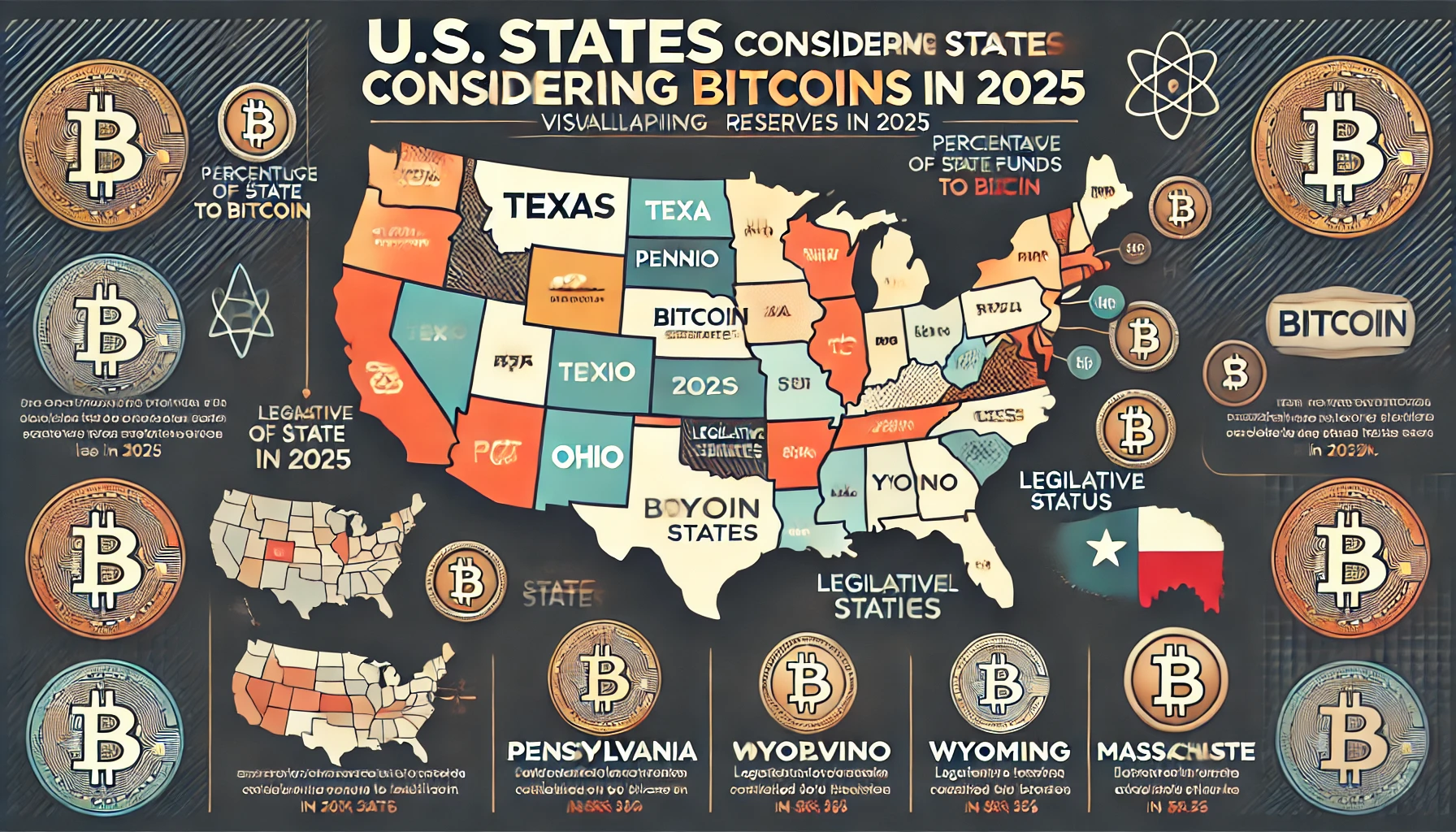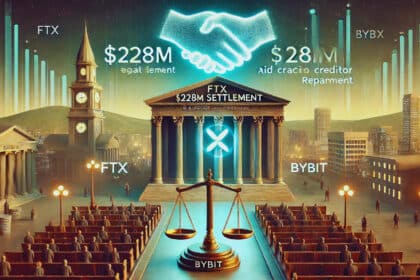Bitcoin isn’t just for tech geeks and Wall Street traders anymore. A wave of U.S. states is actively considering legislation to stack up on Bitcoin reserves, signaling a major shift in how governments perceive the world’s most valuable cryptocurrency. While the federal government, under President Donald Trump’s influence, is pushing to add Bitcoin to the U.S. Treasury, individual states aren’t waiting around for Washington’s approval.
From Texas to Pennsylvania, and even traditionally conservative states like Wyoming and Kentucky, local governments are exploring ways to add Bitcoin to their financial toolkits. This move isn’t just about jumping on the crypto bandwagon—it’s about hedging against inflation, diversifying reserves, and future-proofing state economies. Let’s break down how and why these states are getting into Bitcoin, their plans, and what it means for the future of crypto in America.
Texas: Go Big or Go Home
Texas, famous for doing everything bigger, is leading the charge. State Representative Giovanni Capriglione put forward a bill in December 2024 to create a strategic Bitcoin reserve. The proposal lays out strict rules: the Bitcoin must be kept in cold storage (offline wallets), held for at least five years, and cannot be used for transactions outside the state. Texans will even have the chance to donate Bitcoin to help build the reserve.
Capriglione believes this initiative will boost Texas’s reputation as a leader in digital assets.
“A strategic Bitcoin reserve aligns with Texas’s commitment to fostering innovation in digital assets and providing Texans with enhanced financial security,” the bill reads.
The Lone Star State is already home to some of the largest Bitcoin mining operations in the country. If this bill passes, it could solidify Texas as America’s Bitcoin capital.

Pennsylvania: A Billion-Dollar Bet
Pennsylvania isn’t playing small either. The state’s House of Representatives proposed a bill in November 2024 that would allow the state treasurer to invest up to 10% of the General Fund, Rainy Day Fund, and the State Investment Fund into Bitcoin. That’s a massive investment, potentially worth nearly $1 billion at current prices.
Supporters of the bill argue that Bitcoin has outpaced inflation and traditional assets over the years.
“Bitcoin, which has appreciated significantly over the years, can help Pennsylvania keep pace with inflation and economic change,” lawmakers stated in a legislative memo.
With inflation eroding the value of cash reserves, Pennsylvania sees Bitcoin as a hedge against economic downturns—a move that could inspire other states to follow suit.
Ohio: The Buckeye State Eyes Bitcoin
Ohio has also thrown its hat into the Bitcoin ring. On December 17, 2024, Representative Derek Merrin introduced the Ohio Bitcoin Reserve Act, aiming to create a Bitcoin fund within the state Treasury.
Although the details of the reserve’s management are still being refined, Merrin emphasized Ohio’s need to embrace financial technology.
“Ohio must embrace technology and protect tax dollars from eroding,” he stated on social media.
With Bitcoin becoming a global store of value, Ohio lawmakers see this as an opportunity to diversify the state’s assets before inflation eats away at traditional reserves.
Wyoming: The Bitcoin Frontier
Wyoming has long been a pioneer in crypto-friendly legislation, and now it’s taking things a step further. In January 2025, a group of Republican senators introduced a bill that would permit the Wyoming Treasury to allocate up to 3% of its funds into Bitcoin.
The bill lays out three options for custody:
- Direct ownership by the state treasurer
- Holding Bitcoin through a qualified custodian
- Investing via a Bitcoin ETF
Wyoming has already positioned itself as one of the most crypto-friendly states in the U.S., with regulations that encourage blockchain innovation. This latest move aligns with its broader pro-crypto stance, signaling that digital assets will play a key role in Wyoming’s financial future.

Massachusetts: A Strategic Play for the Future
Not usually associated with crypto, Massachusetts has now joined the ranks of states considering a strategic Bitcoin reserve. State Senator Peter Duran introduced a bill in January 2025 proposing that up to 10% of the state’s rainy day fund be invested in Bitcoin or other cryptocurrencies.
The bill also supports lending Bitcoin to generate additional returns for the state. However, there’s a catch: any lending must be done in a way that “doesn’t increase the financial risk to the commonwealth.”
This cautious but forward-thinking approach suggests that Massachusetts is testing the waters before making a bigger commitment. If Bitcoin continues its bull run, the Bay State could be in for a major financial windfall.
Why Are States Betting on Bitcoin?
So, why this sudden surge in interest? There are a few key reasons:
- Inflation Hedge – With traditional currencies losing value, Bitcoin is seen as a long-term store of value.
- Diversification – Rather than keeping all reserves in cash or bonds, Bitcoin offers an alternative asset.
- Tech Innovation – States want to attract blockchain businesses and encourage financial innovation.
- Federal Influence – With Trump pushing for a national Bitcoin reserve, states are taking preemptive action.
Many lawmakers see Bitcoin not just as an investment but as a safeguard—a digital gold that could protect state funds from economic uncertainty.
Final Thoughts: The Crypto Revolution is Here
The idea of U.S. states stockpiling Bitcoin would’ve sounded crazy just a few years ago. But here we are. Over a dozen states are exploring Bitcoin reserves, and the trend isn’t slowing down.
If these bills pass, we could see a future where states hold Bitcoin alongside traditional assets like gold and treasury bonds. And if Bitcoin continues its meteoric rise, early adopters could reap massive benefits, securing their financial futures while the rest of the country plays catch-up.
Stay tuned to The BIT Journal and keep an eye on Crypto’s updates. Follow us on Twitter and LinkedIn, and join our Telegram channel to be instantly informed about breaking news!
FAQs (Frequently Asked Questions)
1. Why are U.S. states considering Bitcoin reserves?
States see Bitcoin as a hedge against inflation, a way to diversify their reserves, and a tool to attract tech innovation. With Bitcoin’s long-term value growth, some states believe it’s a smart financial move.
2. Which states are leading the Bitcoin reserve movement?
States like Texas, Pennsylvania, Ohio, Wyoming, and Massachusetts are pushing for Bitcoin reserves. Others, including New Hampshire, Oklahoma, Illinois, and Kentucky, are exploring similar legislation.
3. How will states store their Bitcoin?
Most states plan to use cold storage, meaning Bitcoin will be held offline for security reasons. Some are also considering custodial solutions or Bitcoin ETFs.
4. Does this mean Bitcoin will replace the U.S. dollar?
No, these reserves are meant to complement traditional assets like bonds and gold. Bitcoin isn’t replacing cash—states are simply diversifying their portfolios.
Glossary of Key Terms
Bitcoin Reserve – A state-managed stockpile of Bitcoin, held as part of financial reserves to hedge against inflation and economic uncertainty.
Cold Storage – A secure offline method of storing Bitcoin to protect it from cyber threats.
ETF (Exchange-Traded Fund) – A financial product that allows investors to buy Bitcoin indirectly, similar to trading stocks.
Hedge Against Inflation – A strategy where an asset, like Bitcoin, is used to protect purchasing power as the value of traditional money declines.
Staking – A way to earn rewards on cryptocurrency holdings by participating in blockchain networks.
Custodial Solution – A third-party service that securely holds Bitcoin for governments or investors.
Fiat Currency – Traditional government-issued money, like the U.S. dollar or Canadian dollar, that isn’t backed by a physical commodity like gold.
Digital Asset – A broad term for cryptocurrencies like Bitcoin, Ethereum, and other blockchain-based tokens.




























